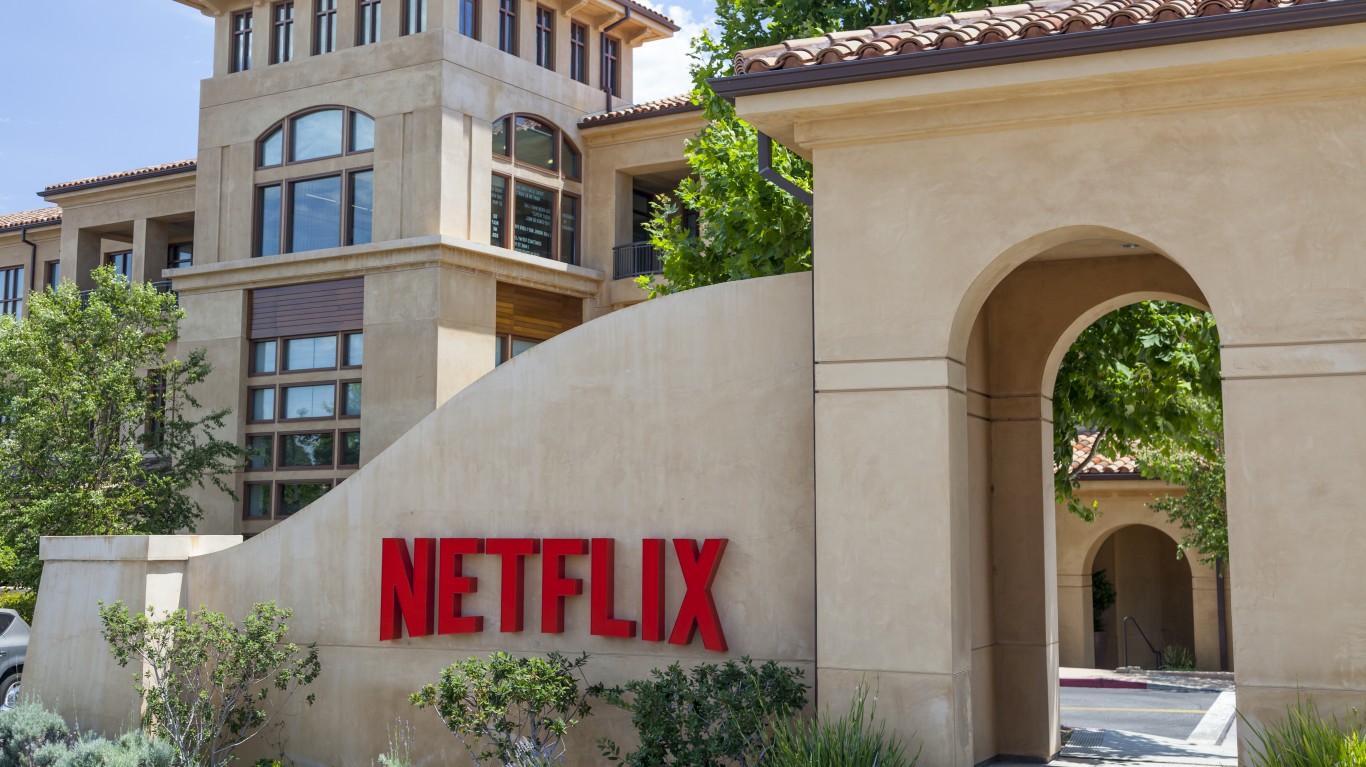If there is one thing that can result from a bull market and from a good economy in which companies have solid balance sheets, it is mergers and acquisitions. In fact, mergers and acquisitions often provide that next wave of growth for established companies. In order to consider a merger, one has to think about who the acquirer would be, then what each company would be worth under a merger scenario, and whether regulators and shareholders on both sides would go for a deal.
With this in mind, 24/7 Wall St. has thought about six potential mergers that investors and activist investors would love to see in the months or years ahead. These are what we would consider to be dream mergers for companies.
The first thing we considered for any would-be or potential merger, after the potential acquirer, was regulatory approval chances. There is no chance that deals between Intel and Qualcomm, or Pfizer and Merck, or Google and Microsoft, could secure regulatory approval. By our view, regulatory approvals would be likely in five of the six mergers proposed here — and the sixth likely would secure approval down the road as more financial pressure arises. It is also our view that shareholders would go along with these potential mergers, but of course that depends on a theoretical merger price.
In an effort to identify these dream mergers, we kept in mind that some management teams just do not want to integrate a merger of large proportions. Bolt-on deals make sense for most management teams, but merging two different companies can create major friction and can distract management. They also can result in major layoffs after the acquirer realizes where costs and overlaps can be cut. Still, some mergers just make almost too much sense not to consider.
ALSO READ: 8 Analyst Stocks Under $10 With Massive Upside Calls
24/7 Wall St. has broken out six dream mergers that corporate officers should at least consider in the months or years ahead. Obviously, this is not meant to imply in any way that these proposed dream mergers are imminent — that is not the case, at least not to our knowledge. Still, these are mergers that would make sense financially and that would strengthen the businesses coming together, as opposed to operating as rivals.
Target: CBOE
Acquirer: Nasdaq or CME
CBOE Holdings Inc. (NASDAQ: CBOE) is worth close to $5 billion now, and it is the remaining independent leader of options trading. Nasdaq OMX Group (NASDAQ: NDAQ) is 70% larger by market cap, and CME Group Inc. (NASDAQ: CME) is worth six times the CBOE in market cap. The New York Stock Exchange was acquired by IntercontinentalExchange Inc. (NYSE: ICE) for billions of dollars in recent years. Financial exchange mergers have slowed drastically in recent years because the industry has almost consolidated entirely. CBOE could make that consolidation complete.
One negative may be declining volumes in recent reports, but that may end up driving the price to a more affordable target and might even make CBOE more open to a buyout down the road. When companies merge, it is often to protect market share or to keep competition from getting too far ahead. Would CME’s base being in Chicago make it easier for it to acquire a Chicago-based exchange than Nasdaq’s base being in New York?
CBOE trades around $59.00, against a 52-week range of $46.52 to $68. It has a consensus analyst price target of $59.50, and it recently was issued price targets of $60, $58 and $53 by Deutsche Bank, Credit Suisse and Barclays, respectively. CBOE has a market cap of $5 billion, compared to CME, which has a market cap of $34 billion, or Nasdaq at almost $9 billion.
Target: eBay (a split eBay and PayPal)
eBay Acquirer: Amazon or Alibaba
PayPal Acquirer: Visa, MasterCard or Google
eBay Inc. (NASDAQ: EBAY) is already in the midst of breaking up, and its market cap is large enough at $72 billion that it would not be an easy merger for the entire company. This means that there are two would-be potential acquisition targets. With a split of PayPal and the eBay auction system, there might be plenty of takers. Amazon.com Inc. (NASDAQ: AMZN) could own the auction market, just like it owns much of the online retail market. Is it fathomable that Visa Inc. (NYSE: V) or MasterCard Inc. (NYSE: MA), or even Google Inc. (NASDAQ: GOOGL), could step in to buy the PayPal operation? Both may feel like a stretch in raw dollar terms, but companies now have to consider ways of protecting their value and dominance for more than a generation ahead.
Both SpinCo companies will be open to growth opportunities. The question is if they will be acquirers or if they get acquired. Chances seem very high that both companies would be very open to being acquirers themselves. As far as Alibaba Group Holding Ltd. (NYSE: BABA) getting to embark on major U.S. acquisitions, regulators may object to Chinese companies being too dominant in the United States, and customers could revolt as well.
A recent eBay price of $59.74 compares to a consensus analyst price target of $59.44 and a 52-week trading range of $46.34 to $60.93. Susquehanna has a price target of $75 for eBay, and Axiom Securities has a price target of $60; both targets were issued in March. eBay has a market cap of $72 billion, compared to Alibaba’s market cap at $210 billion and Amazon’s at $173 billion.
ALSO READ: 8 Oil and Gas Stocks Analysts Want You to Buy
Target: E*Trade
Acquirer: Schwab or TD Ameritrade
If there is one brokerage firm acquisition that has been pondered by the investment community for years, it is E*Trade Financial Corp. (NASDAQ: ETFC). While there was a point before things got too bad in the financial crisis that Morgan Stanley or Goldman Sachs were considered would-be acquirers. The most likely acquirers now are Charles Schwab Corp. (NYSE: SCHW) and TD Ameritrade Holding Corp. (NYSE: AMTD). With E*Trade being more independent from Citadel and with its mortgage mess deemed largely behind it, perhaps the only remaining discussion would be on price.
Schwab is worth nearly five times the firm, and TD Ameritrade is worth about 2.5 times E*Trade. Also, E*Trade has roughly 3.17 million brokerage accounts and 1.27 million stock plan accounts, with total customer assets of $216 billion. Schwab has over 9.1 million active brokerage accounts, with total assets of $2.53 trillion, versus $697.6 billion in total client assets for TD Ameritrade. Reuters ran a report showing that TD Ameritrade was not interested in buying E*Trade, but you know mergers can be price-driven and opportunistic when the chance arises.
E*Trade shares were recently trading at $28.30, against a 52-week range of $18.20 to $28.52. The stock has a consensus analyst price target of $28.29, consisting of a couple $31 price targets from JMP Securities and Deutsche Bank. E*Trade has a market cap of $8 billion, compared to Schwab at $40 billion or TD Ameritrade at $20 billion.
Target: Netflix
Acquirer: Apple or Amazon
Netflix Inc. (NASDAQ: NFLX) is not a new name on lists of would-be buyouts that the investing community has speculated about. One serious hurdle is a nosebleed valuation of about 100-times earnings. Netflix dominates its space in online TV and movie content, and it is creating its own content to protect its brand. Netflix now counts over 57 million members and is nearing a footprint in 50 countries.
Amazon has made media and content efforts of its own here, and the latest news is that Apple Inc. (NASDAQ: AAPL) is prepping a launch of a new subscription model of its own for online TV viewing. Should Apple just buy the company rather than go it alone? Obviously it would be easier for Apple to buy Netflix than for Amazon to do so, due to Apple’s endless billions of dollars in cash. Still, Jeff Bezos probably would not mind owning the brand either. This is far from our first time pondering a Netflix acquisition, but it remains a deal that may never come about.
ALSO READ: 5 Software Stocks That Are Potential Buyout Candidates
Netflix stock was recently trading at $420, with a 52-week trading range of $299.50 to $489.29. The stock has a consensus analyst price target of $443.72. Recent price targets have been issued for Netflix from Evercore at $380 and Morgan Stanley at $553. Netflix has a market cap of $25 billion, compared to Apple at $740 billion or Amazon at $173 billion. Oppenheimer recently called the weakness a buying opportunity.
Target: MagicJack VocalTec
Acquirer: Vonage
It almost seems unbelievable that the legacy phone carriers, which are focused on wireless these days, never bought up the VoIP players out there. Maybe there would have been FCC, FTC or Department of Justice pushback. But what seems amazing even more is that the number one and number two players in Internet telephony have not banded together rather than face so much churn and customer acquisition costs. Their marketing costs could come down handily by offering either brand or both brands under one roof. They are not identical in customer bases and in the interface, but they are close enough that customers could choose platforms under one roof and on one bill. As of December 31, 2014, MagicJack VocalTec Ltd. (NASDAQ: CALL) had an estimated 2.75 million active subscribers. Vonage Holdings Corp. (NYSE: VG) said that it had 2.47 million subscriber lines at the end of 2014.
Vonage recently completed a deal to buy Telesphere, and the company has said that it expects to complete one or more acquisitions in 2015 that would be accretive to revenue. Vonage recently announced its intent to acquire Simple Signal for about $25 million. Would MagicJack be too much of a leap? Or does the overseas headquarters pose any regulatory challenges?
MagicJack VocalTec was recently trading at $6.85, in a 52-week trading range of $6.50 to $25.37. The consensus price target is $15.50. It has a market cap of $125 million, compared to Vonage’s cap of about $950 million.
ALSO READ: Companies Profiting the Most From War
Merger of Near Equals: T-Mobile and Sprint
The merger of T-Mobile US Inc. (NYSE: TMUS) and Sprint Corp. (NYSE: S) is a merger that was already expected to happen, but it was given a thumbs-down view by U.S. regulatory powers. AT&T Inc.’s (NYSE: T) effort to acquire T-Mobile also failed, and AT&T had to pay a $4 billion break-up fee. Still, Sprint and T-Mobile are effectively tracking stocks as they stand now. Sprint claims to have 56 million customers, and T-Mobile was recently shown to have about 55 million customers.
One has to wonder how profitable it can be for Sprint and T-Mobile to keep trying to suck away subscribers from AT&T and Verizon Communications Inc. (NYSE: VZ) at any cost that can be conceived. Price wars are great for consumers, but not necessarily for the companies involved. If one of the companies were to run into a serious financial issue, then regulators might be unable to say they still want four major wireless carriers.
T-Mobile was recently trading at $32.35, within in a 52-week trading range of $24.26 to $35.50. Sprint has been trading at $5.09, in a 52-week range of $3.79 to $9.76. T-Mobile has a consensus analyst price target of $37.00 and Sprint has a consensus price target of $7.28. Comparatively, T-Mobile has a market cap of $26 billion, versus Sprint and its market cap of $20 billion.
********
There is one other unfortunate issue that can always get in the way of a merger, and that is cash stuck overseas. Some companies have balance sheets that are loaded with cash, but that cash is kept overseas and would get taxed at 35% if repatriated.
Dream mergers are easy to imagine, but what is not easy is coming up with a list of would-be mergers that actually could receive regulatory approval, now or later. It is also difficult conceiving what prices would actually be approved by both sides, as favorable for sellers and accretive or defensive for the acquirer.
ALSO READ: The Next 3 Likely Biotech Buyout Candidates
It seems that the days when private equity groups are willing to pay billions for companies are over. It is now much harder to buy a company only to leverage a company up and sell it back in an initial public offering.
These proposed mergers would make financial sense for the companies involved — depending on the price. Under no circumstances should these dream mergers be interpreted as active rumors of pending deals.
Is Your Money Earning the Best Possible Rate? (Sponsor)
Let’s face it: If your money is just sitting in a checking account, you’re losing value every single day. With most checking accounts offering little to no interest, the cash you worked so hard to save is gradually being eroded by inflation.
However, by moving that money into a high-yield savings account, you can put your cash to work, growing steadily with little to no effort on your part. In just a few clicks, you can set up a high-yield savings account and start earning interest immediately.
There are plenty of reputable banks and online platforms that offer competitive rates, and many of them come with zero fees and no minimum balance requirements. Click here to see if you’re earning the best possible rate on your money!
Thank you for reading! Have some feedback for us?
Contact the 24/7 Wall St. editorial team.



